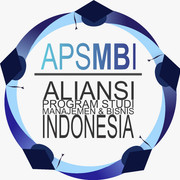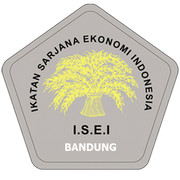The Impact of Human Resource Competency and Transformational Leadership on Employee Performance with Motivation as a Mediating Variable
Abstract
Transformational Leadership at DLH has been applied but there is still no evidence that the application of transformational leadership at DLH Kota Surabaya can improve overall employee performance. This research aims to analyze the influence of competence and transformational leadership on employee performance through the role of motivation as an intervening variable using the SEM-PLS method on a sample of DLH Surabaya City employees. SEM-PLS is used because of its ability to obtain relationship results between variables. The results show good validity and reliability of the instrument. Motivation variables explain 47.6% of employee performance, while competence and transformational leadership explain 52% of motivation. In a case study at DLH Kota Surabaya, it was found that competence had a positive and significant effect on employee performance and motivation. Transformational leadership has a positive and significant effect on motivation but not employee performance. Motivation does not have a significant effect on employee performance and is not effective as a mediating variable between competence and performance, as well as transformational leadership and performance. Factors such as rigid bureaucratic structures and lack of effective training contributed to these findings. These findings are important for policy makers to develop more effective HR management and leadership strategies.
Keywords
Full Text:
PDFReferences
Alrowwad, A. A., Abualoush, S. H., & Masa'deh, R. E. (2020). Innovation and intellectual capital as intermediary variables among transformational leadership, transactional leadership, and organizational performance. Journal of Management Development, 39(2), 196-222. https://doi.org/10.1108/JMD-02-2019-0062
Boon, C., Den Hartog, D. N., & Lepak, D. P. (2019). A Systematic Review of Human Resource Management Systems and Their Measurement. Journal of Management, 45(6), 2498–2537. https://doi.org/10.1177/0149206318818718
Bos-Nehles, Anna. C., & Veenendaal, A. A. R. (2019). Perceptions of HR practices and innovative work behavior: the moderating effect of an innovative climate. The International Journal of Human Resource Management, 30(18), 2661–2683. https://doi.org/10.1080/09585192.2017.1380680
Budhwar, P., Malik, A., De Silva, M. T. T., & Thevisuthan, P. (2022). Artificial intelligence – challenges and opportunities for international HRM: a review and research agenda. The International Journal of Human Resource Management, 33(6), 1065–1097. https://doi.org/10.1080/09585192.2022.2035161
Cooke, F. L., Cooper, B., Bartram, T., Wang, J., & Mei, H. (2019). Mapping the relationships between high-performance work systems, employee resilience and engagement: a study of the banking industry in China. The International Journal of Human Resource Management, 30(8), 1239–1260. https://doi.org/10.1080/09585192.2015.1137618
Deng, C., Gulseren, D., Isola, C., Grocutt, K., & Turner, N. (2023). Transformational leadership effectiveness: an evidence-based primer. Human Resource Development International, 26(5), 627–641. https://doi.org/10.1080/13678868.2022.2135938
Donnelly, R., & Johns, J. (2021). Recontextualising remote working and its HRM in the digital economy: An integrated framework for theory and practice. The International Journal of Human Resource Management, 32(1), 84–105. https://doi.org/10.1080/09585192.2020.1737834
Hajiali, I., Kessi, A. M. F., Budiandriani, B., Prihatin, E., & Sufri, M. M. (2022). Determination of work motivation, leadership style, employee competence on job satisfaction and employee performance. Golden Ratio of Human Resource Management, 2(1), 57-69. https://doi.org/10.52970/grhrm.v2i1.160
Kolibáčová, G. (2014). The Relationship Between Competency and Performance. Acta Universitatis Agriculturae et Silviculturae Mendelianae Brunensis, 62, 1315–1327. https://doi.org/10.11118/actaun201462061315
Lapointe, M.-C., & Perreault, S. (2013). Motivation: understanding leisure engagement and disengagement. Loisir et Société / Society and Leisure, 36(2), 136–144. https://doi.org/10.1080/07053436.2013.836386
Laroche, P., & Salesina, M. (2017). The Effects of Union and Nonunion Forms of Employee Representation on High-Performance Work Systems: New Evidence from French Microdata. Human Resource Management, 56(1), 173–189. https://doi.org/https://doi.org/10.1002/hrm.21784
Malik, P., & Garg, P. (2020). Learning organization and work engagement: the mediating role of employee resilience. The International Journal of Human Resource Management, 31(8), 1071–1094. https://doi.org/10.1080/09585192.2017.1396549
Shamim, S., Cang, S., & Yu, H. (2019). Impact of knowledge oriented leadership on knowledge management behaviour through employee work attitudes. The International Journal of Human Resource Management, 30(16), 2387–2417. https://doi.org/10.1080/09585192.2017.1323772
Skousen, C. J., & Sun, L. (2019). Do employee dimension ratings reflect employee performance? Evidence from MSCI’s ESG database. Applied Economics Letters, 26(14), 1182–1185. https://doi.org/10.1080/13504851.2018.1540843
Sulistyan, R. B., Carito, D. W., Cahyaningati, R., Taufik, M., Kasno, K., & Samsuranto, S. (2022). Identification of Human Resources in the Application of SME Technology. Wiga : Jurnal Penelitian Ilmu Ekonomi, 12(1), 70-76. https://doi.org/10.30741/wiga.v12i1.799
Wang, Y., Kim, S., Rafferty, A., & Sanders, K. (2020). Employee perceptions of HR practices: A critical review and future directions. The International Journal of Human Resource Management, 31(1), 128–173. https://doi.org/10.1080/09585192.2019.1674360
DOI: https://doi.org/10.17509/image/2024.017
Refbacks
- There are currently no refbacks.
Copyright (c) 2024 Anies Wijayanti, Andre Dwijanto Witjaksono, Anang Kistyanto

This work is licensed under a Creative Commons Attribution-ShareAlike 4.0 International License.
Image : Jurnal Riset Manajemen is licensed under a Creative Commons Attribution-ShareAlike 4.0 International License
View My Stats



